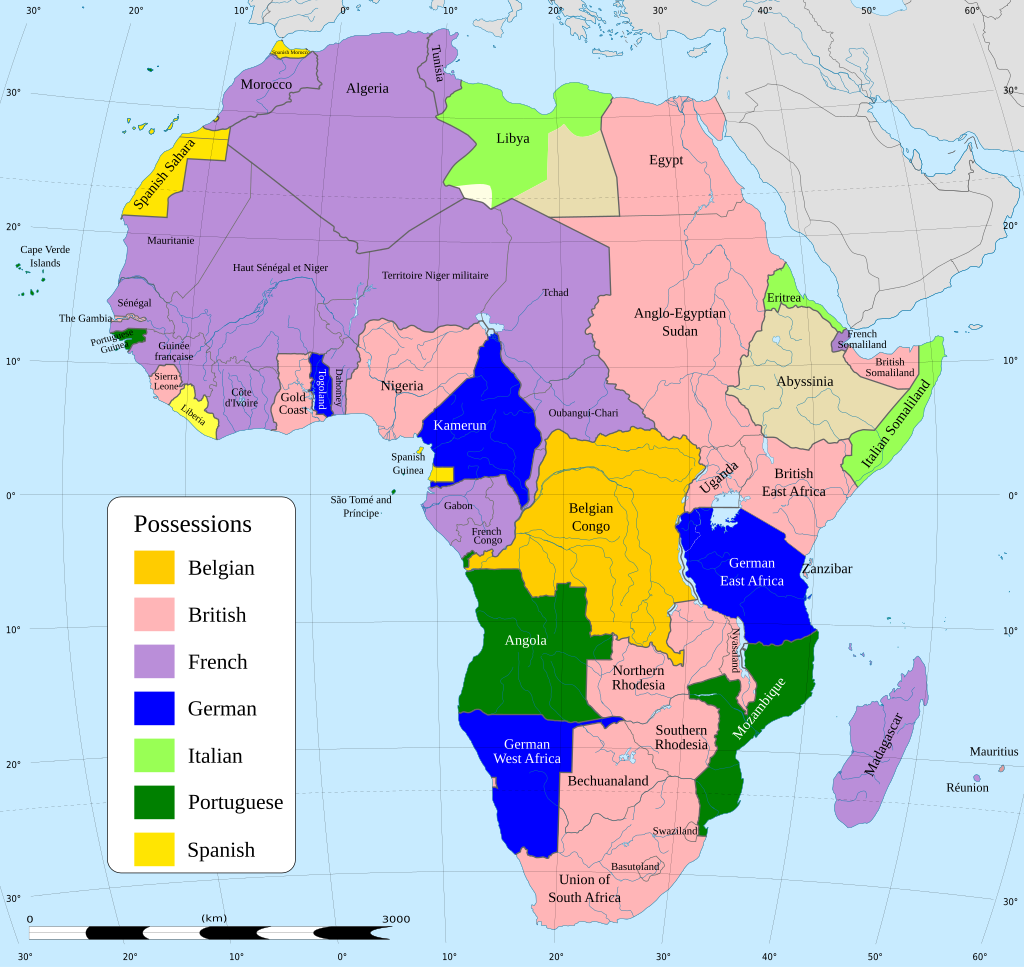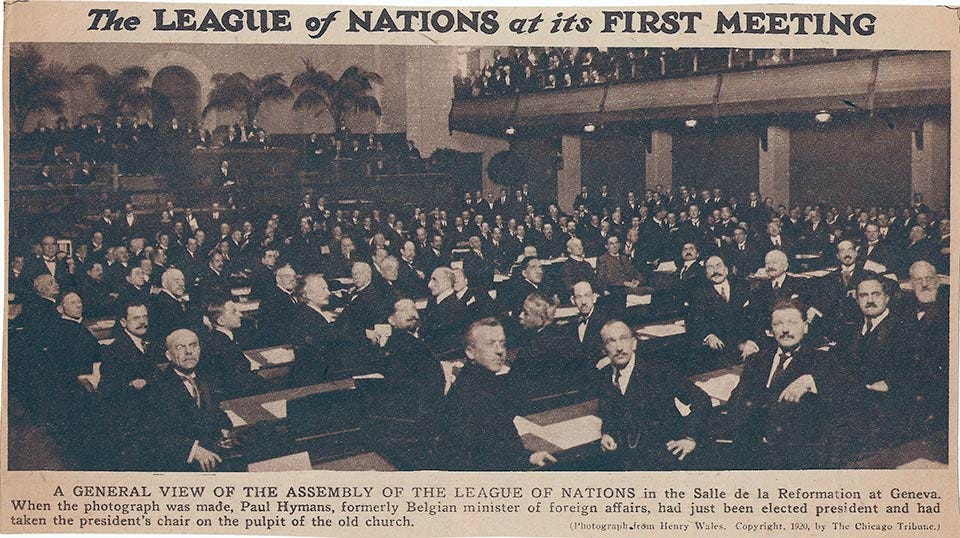The basics of how World War I started is relatively agreed upon by scholars and historians. A Serbian nationalist killed Austrian Archduke Franz Ferdinand, the heir to the Austrian / Hapsburg throne. Austria/Hungary then issued an ultimatum to Serbia for the killer. Russia promised to protect Serbia. Austria/Hungary then attacked Serbia, Russia’s ally. Russia then declared war on Austria/Hungary. Then, the allies of Austria/Hungary, Germany, and the Ottoman Empire declared war against Russia. Russian allies, England and France, then declared war on Austria/Hungary. And kablooy.
This history is well known. However, it deals with the mechanics of how the war started, not the reasons it occurred. This post looks at the geographical strains that helped start the war – with some economic interests thrown in. It is not a complete look, so there will be (at least) 1 more part of this story in the next post.
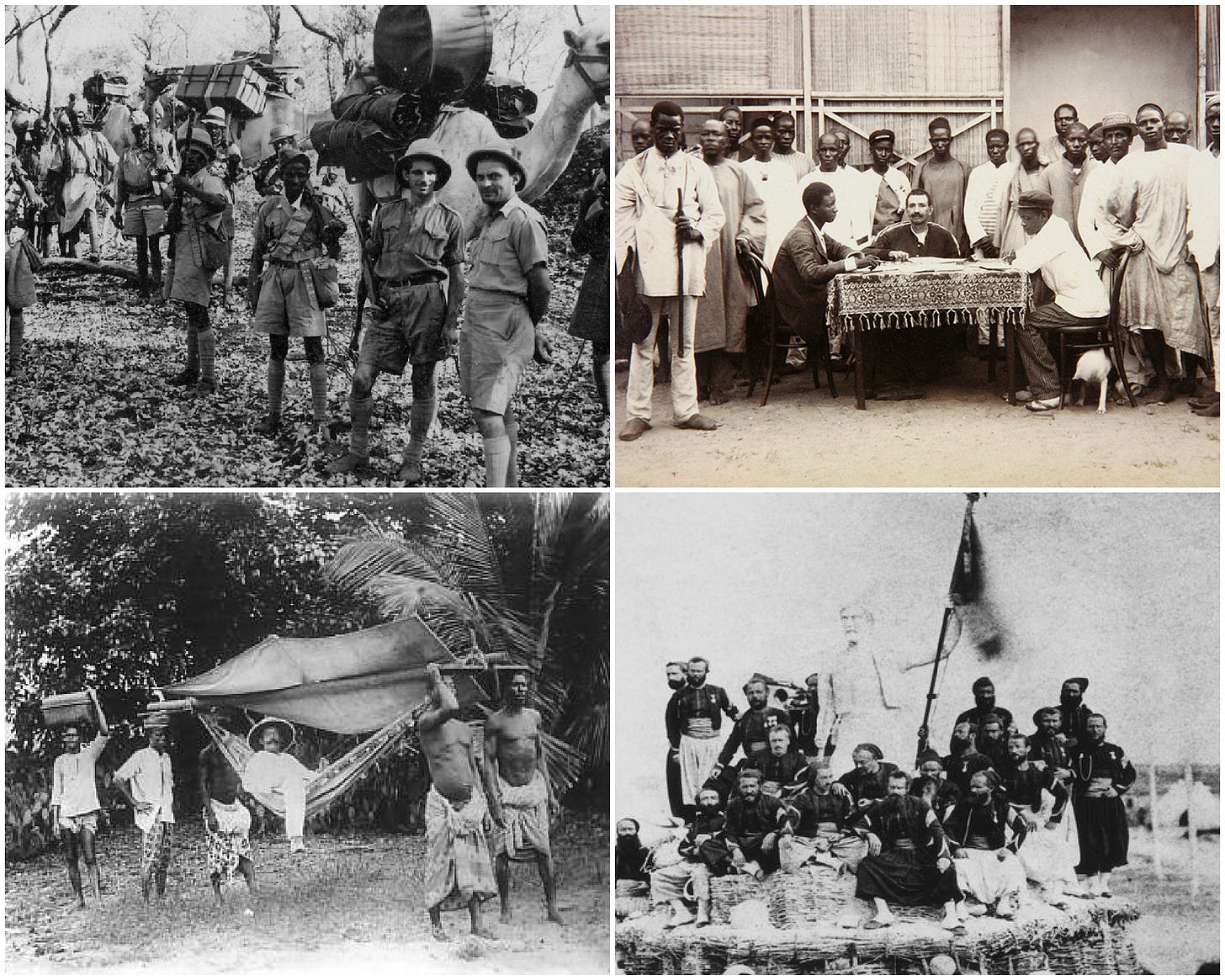
Imperialism: Winners and Losers
The period before World War I was the heyday of Imperialism. European powers competed for overseas colonies in the century before World War I. Great Britain and France had the most success both in holding the most territory and investing time and energy in building them up. Great Britain and France, therefore, were the primary powers calling for keeping of the status quo.
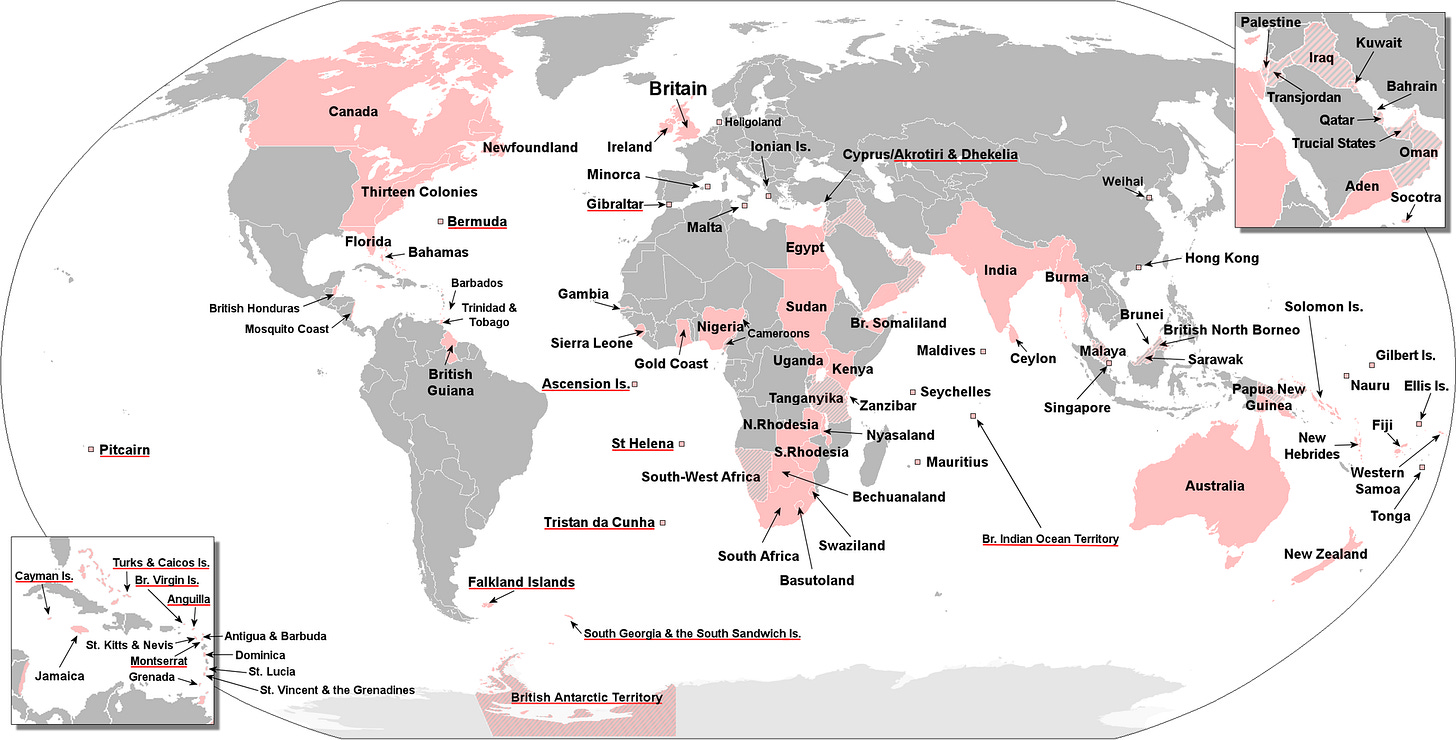
The British Empire
Great Britain’s colonies and territories were near their height during the age of imperialism[1]. They ruled much of the world in 1915; they had the most significant naval forces and an overseas empire that could supply men for a way. The British Empire exploited these colonies, but at the same time, the colonies saw economic gains from the trade. Britain also exported administration and decentralized rule to many of their colonies, which helped them after the transition to independence.
Outside of Europe, the empire stifled the other European powers. At the time, Britain controlled much of the world and had hegemony over the oceans. This lead to a British world trading system with the resentment that brings.
France
During the height of Imperialism, France also had extensive colonial holdings, mainly in northwest Africa and Indochina. The French used the “protectorate” system to assert their interest and dominance in Morocco and Tunisia, nations that were controlled and protected by France. Over time, France established more control over protectorates to the point where they became de facto colonies.
France and Great Britain ended their last war in the 1815 Napoleonic Defeat. In the post-Napoleonic period, France and Great Britain were not necessarily allies but often did act in concert as their interest demanded. For example, they joined with the Ottoman Empire in the Crimean War (1853-1856).
Germany
Germany was only united under a single national system in 1871 and was faced with a world where little territory was left to be claimed by Germany. After conflicting claims and rising hostilities in the late 1900s, the Berlin Conference of 1884-1885 divided up Africa between the main powers with 50 different colonies. Germany and Italy (unified after 1861) were granted colonies in Africa by the end of the conference. Many nations saw colonies as the producers of wealth and extensions of Imperial access. The granting or taking of colonies by Germany did not create a great empire, but it did extend the range of power projection by Germany.
Germany also expanded their colonial possessions in Oceania by controlling much of Micronesia and Melanesia islands. This control extended the range of Germany's naval power projection in Asia.
Naval Power
As mentioned above, the great naval power of this period was Great Britain. The British Navy enforced colonial rule in the late 1900s, by far the most potent naval power of her day. The British projection of maritime power enabled access to nearly all overseas colonies, which annoyed the lesser colonial powers.
In this system, France benefited from being an ally of Britain and having many colonies sharing the Mediterranean, where naval power was less important. In the case of Germany, the desire to challenge Britain at sea drove the country to develop a strong submarine fleet to challenge the British navy.
The British Navy grew into a power as the overseas trade in the Empire grew in importance. England gained wealth through its colonial system, and having a powerful navy was vital to that system.
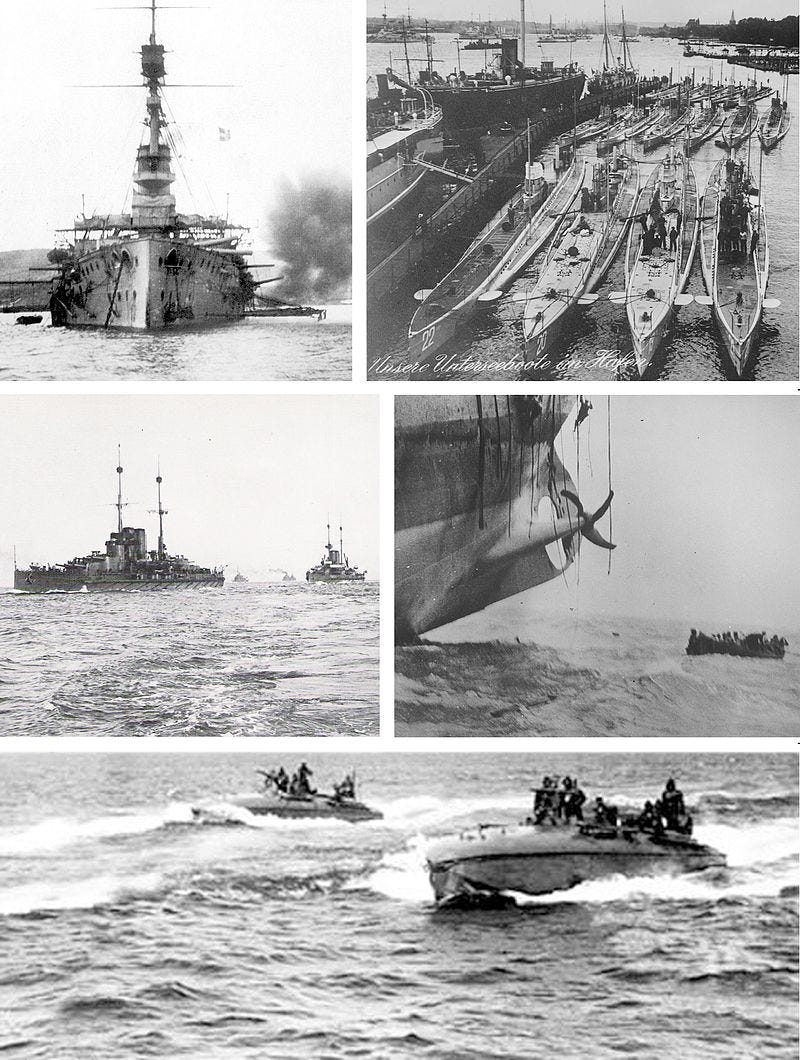
The Status Quo vs. Growing Powers
This colonial period saw some nations comfortable depending on the support and power of the British Empire. However, for Germany and Italy the status quo was infuriating and helped to drive anger and antagonism towards the system. This set up a political conflict exasperated by skirmishes in the various colonies and conflicts between great powers on the periphery of the Empires.
The division in colonial power led to an alliance between Great Britain and France as the status quo powers. Germany, Austria/Hungary, and Italy agitated for chances and were called the central powers. Russia was a traditional power that held most of its European territories as part of the nation, but it was effectively the colonial power of the East.
Italy itself did not enter the war with its allies immediately. Although it was allied with Germany and Austria, it joined the French, British, and Russian forces after it was promised territorial gains from defeated Austria-Hungary.
Territorial Disputes in Europe
The colonies and colonial borders system probably would not have pushed Europe into WWI alone. However, there were disputes among the Great Powers within Europe over borders and populations. These often pitted empire versus empire. The following issues represented the primary geographical disputes.
Alsace and Lorraine
After the Franco-Prussian War, Germany took the provinces of Alsace and Northern Lorraine. France and Germany both desired this border region. During the German occupation, the region quickly grew economically, which only stiffened France's resolve to get the territory back.
France believed the Rhine, the border between Alsace Lorraine and Germany, was the natural of France. The French Republic thought the region's people should be allowed to vote on which country the locals would join. Germany believed that Alsace Lorraine was part of Germany linguistically and culturally. Germany was adamant that the region would stay in Germany.
Eastern Europe Changes
Before WWI, the map of Eastern Europe looked simplistic. The area was divided between the Russian, Austria-Hungarian, and German Empires, which caused a lot of low-level conflict in the region. The region's polyglot nature ensured resentment at the new Empire that ruled the people. The people of Poland, Lithuania, and Gallica all clashed with the ruling power for some form of independence or self-rule.
The Balkans Disputes
Wars in the Balkans preceded WWI. The region was a turbulent area controlled by the Ottoman Empire since the 14th century. The Empire faced serious local uprisings and foreign interference towards the end of the 19th century, with Serbia and Montenegro gaining independence in 1878 and Herzegovina (now Bosnia) becoming a protectorate of Austria.
In 1912, the first Balkan War established the new nations of Romania, Bulgaria, and Albania. Serbia, Montenegro, and Greece gined territory. A second Balkan War occurred only a year later when Bulgaria fought against the new nations for dominance but lost. Serbia desired the Austrian province of Bosnia-Herzegovina. Romania desired parts of the Hungarian empire. Greece, Serbia, and Bulgaria contested the area of Macedonia, now partially in Greece and partially in North Macedonia.
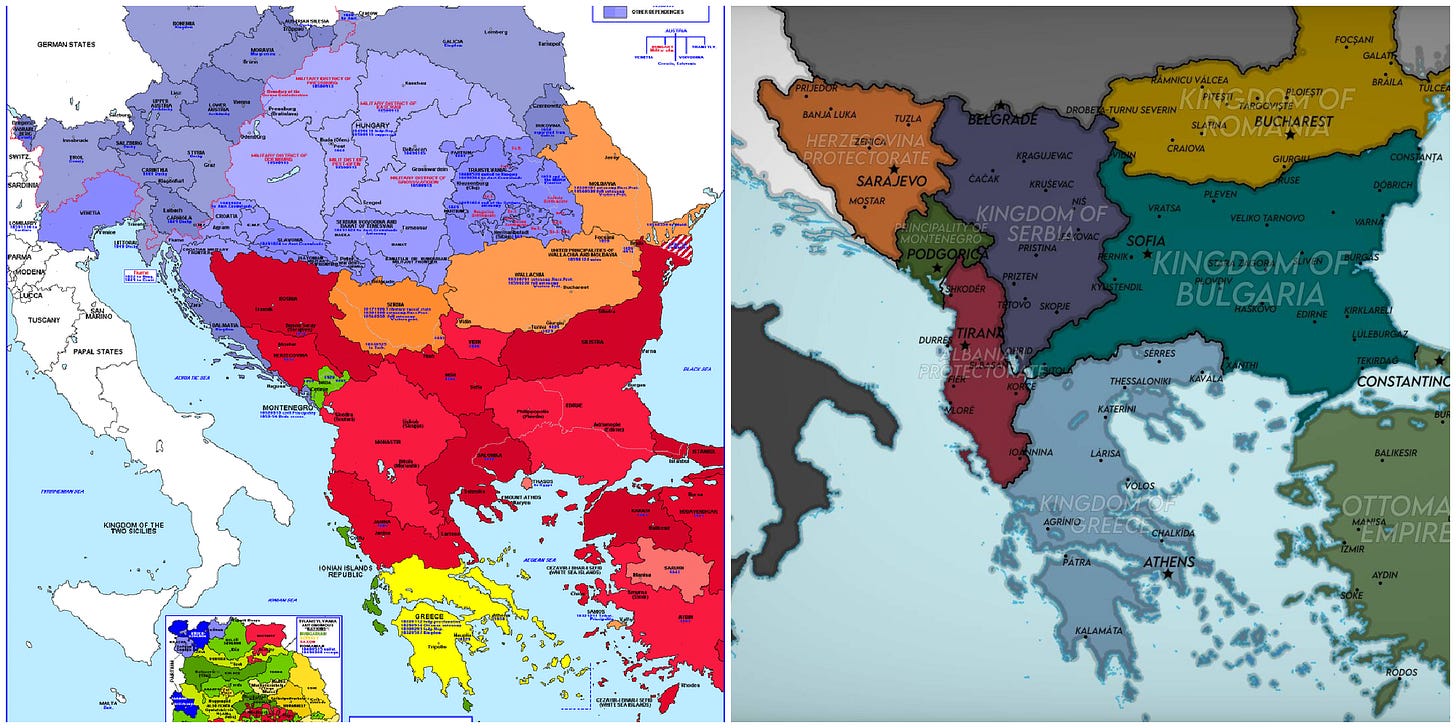
Tensions in the area, specifically in Bosnia, were the proximate cause of the conflict. It was a Serbian nationalist who killed Archduke Franz Ferdinand of Austria and set off the war.
Geographical results of World War I
Looking only at the geography, there were significant changes after the war. Alsace Lorraine was transferred to France. Germany and the Soviet Union – tsarist Russia had been overthrown – lost land to form Finland, Estonia, Latvia, Lithuania, and Poland. Austria-Hungary was broken into Austria, Hungary, and Czechoslovakia. Austria ceded territory to Italy and Yugoslavia, and Hungary ceded land to Romania. The western Balkans were consolidated into the “Kingdom of Slavs, Croats, Slovenes.” Later, the name was changed to the Kingdom of Southern Slavs (“Yugoslavia”) with a Serbia King.
Ireland also emerged from the war as a new nation after centuries of fighting Great Britain. The Irish revolutionaries had no new tactics, but Great Britain wanted to focus on the war in Europe, not a civil war in Ireland.
Geographically, these new smaller nations were more consistent culturally and ethnically – at that time, the term “ethnicity” was used to distinguish between various European states. However, some large minority populations were still isolated in new states—for example, Germans in the border regions of Czechoslovakia, Poland, and Lithuania. The list of these “outposts of minorities” is complicated; some integrated well, and others served as convenient excuses for WWII. Germany’s leaders, in particular, were outraged at the changes and their demands helped drive World War II.
The League of Nations
One of the key principles of the world order in the aftermath of World War I was the creation of the League of Nations, a precursor of the United Nations. It served more as a place of diplomacy than an enforcer of rules. It was not successful in averting war, but the lessons learned from it helped form the United Nations to avoiding some of those same mistakes.
You can see, The League had no representatives from the colonies. In fact, almost none of the populations of Asia or Africa were represented in this forum.
[1] The Britis,h Empire and French Empires did expand a bit after WWI brought the defeat of Germany and the Ottoman Empire. However, these were granted post-war to Britain, not as a function of their “discovery” and exploitation.



